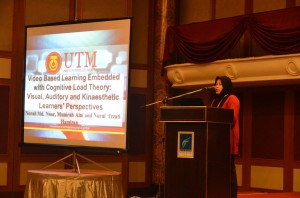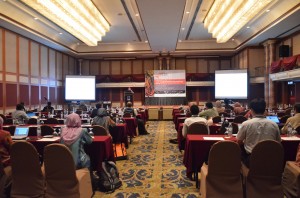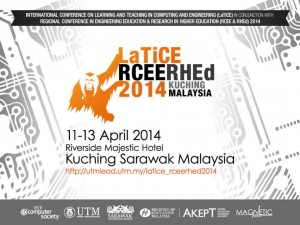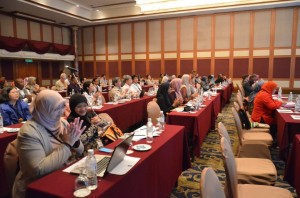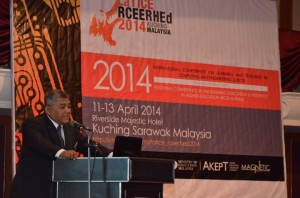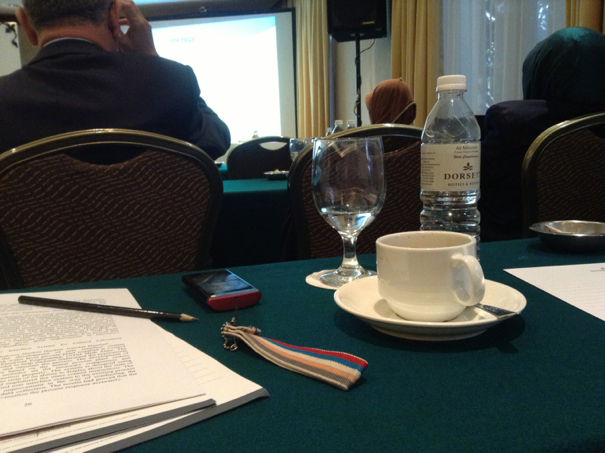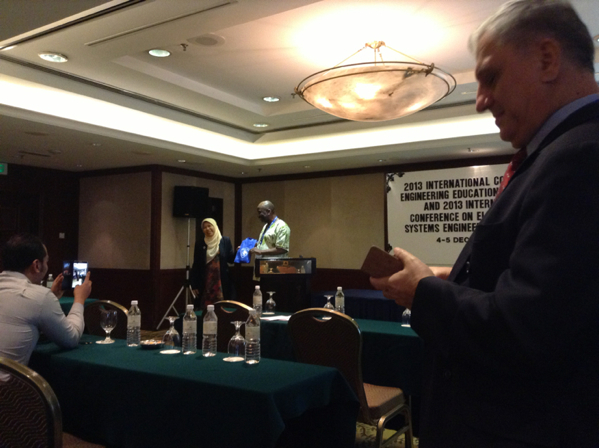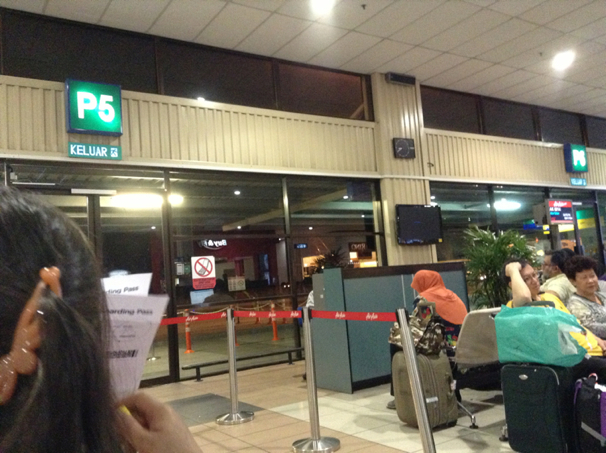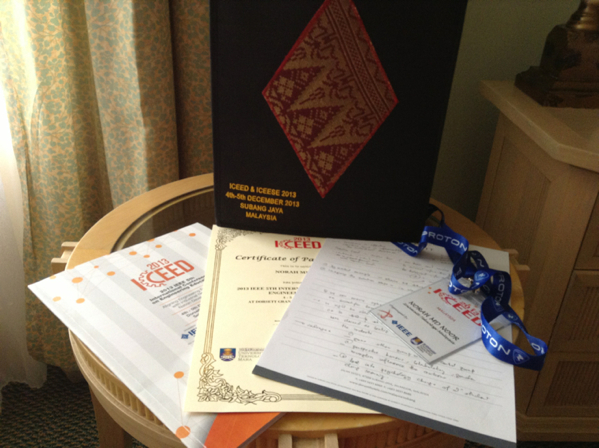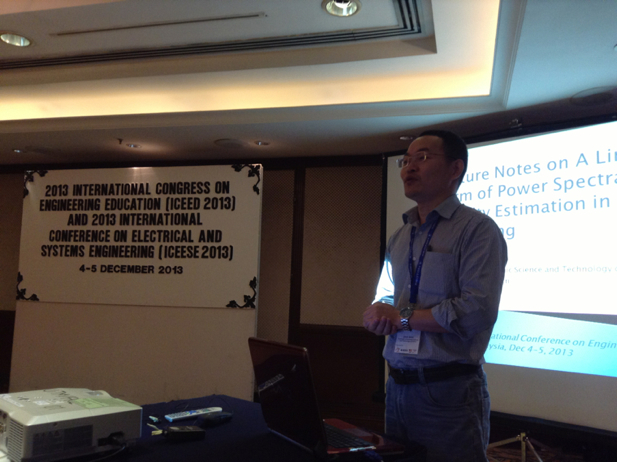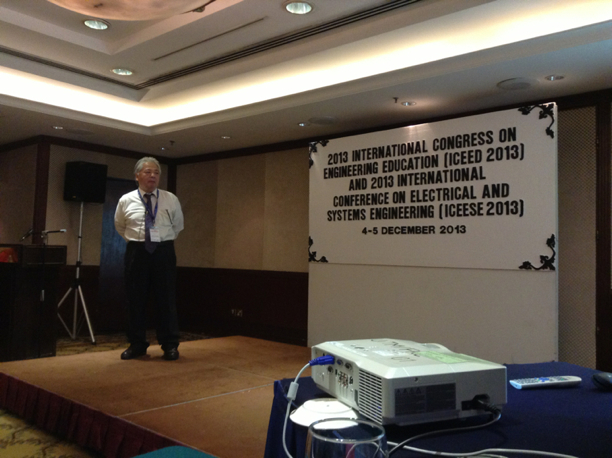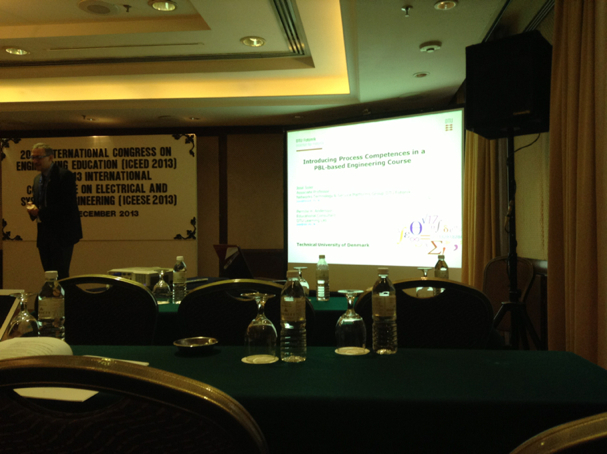My 2nd paper accepted to be presented during the LaTiCE 2014 in conjunction with RCEE & RHEd 2014 conference is
“Video Based Learning Embedded with Cognitive Load Theory: Visual, Auditory, and Kinaesthetic Learners’ Perspectives”
This paper is written by me and my students. Norah Md Noor, Munirah Aini, & Nurul ‘Izzati Hamizan. It was written based on our research that had been done in 2013 under UTM Instructional Development Grant.
Abstract for the paper is as follows:
Many research studies have shown that using video as an instructional material in class has a positive impact on the students. However, it is still an open question as to whether learning using video works with all type of students and as to who actually gains more than other types of students when learning using video. Chen, Czerwinski, and Macredie [1] found that individual visual ability affects information seeking on the Web and lessens the effects of cognitive load theory. So, what about the auditory and kinaesthetic learners? This study was conducted to investigate visual, auditory, and kinaesthetic learners’ preferences towards learning using video embedded with cognitive load theory. 10 respondents within the age range of 20-24 years old have been voluntarily involved with this study. The instruments used in this research are a questionnaire set and three learning portfolios. The instruments examine the respondents’ learning styles, perception, comments, and suggestions about video-based learning selected by the researcher that were embedded with cognitive load theory. The data were analysed qualitatively using content analysis strategy. Even though the early expectation was that visual learners would be concerned about visuals more than other learner types, this research shows that all of them prefer similar elements. These include clear instruction, high visual and audio quality, and an easy-to follow strategic flow of the video. However, every learner group has its own additional characteristics that might be able to inspire its learning optimization.
Keyword: Cognitive load theory, video based learning, learning using video, auditory learners, visual learners, and kinaesthetic learners
This paper can be found in IEEE Explore,
PROCEEDING ISBN : 978-1-4799-3592-5/14
DOI : 10.1109/LaTiCE.2014.19
